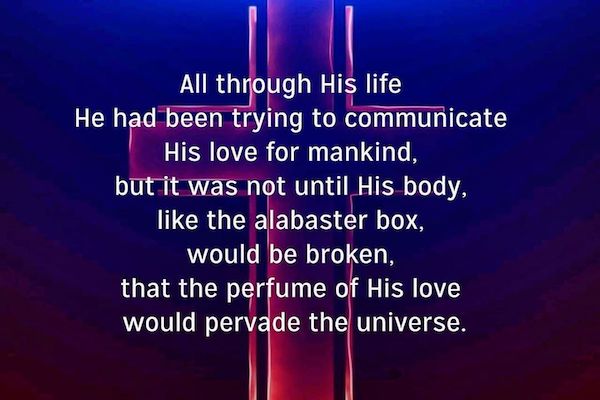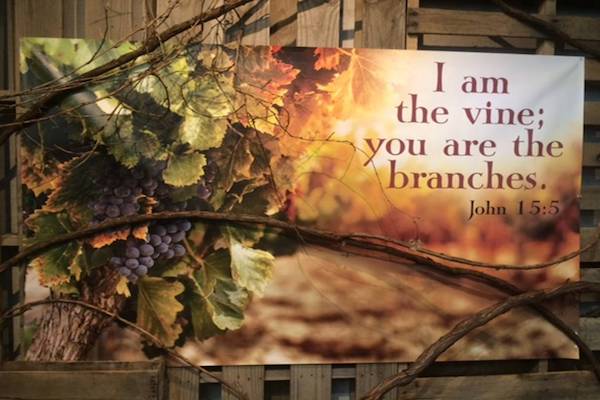LENT 2024: Day 19 - LIFE OF CHRIST

LENT 2024: DAY 19 - Wednesday March 6
“The words of the Master flowed more freely once the restraint of the traitor had been removed. Furthermore, the departure of Judas on his mission of betrayal brought the Cross within a measurable distance of Our Lord. He now spoke to His Apostles as if he was feeling the crossbeams. If His death would be glorifying, it must have been because something would be done by it which was not accomplished by His words, miracles, and His healing of the sick. All through His life He had been trying to communicate His love for mankind, but it was not until His Body, like the alabaster box, would be broken, that the perfume of His love would pervade the universe. He said also that, in His Cross, God the Father was glorified. This was because His Father did not spare His own Son, but offered Him to save man. He put a new meaning into His death, namely, from His Cross would beam forth the pity and the pardon of God.
He now addressed His Apostles in two different ways: as a dying parent to His children, and as a dying Lord to His servants. “It is only for a short time that I am with you, My children.” (John 13:33)
He had already spoken of the unity between the Apostles and Himself through the Eucharist, He would take up the theme again under the figure of the vine and the branches. This unity of which he spoke was not such as existed at that moment, for within an hour they would all desert Him and flee. Rather it was the unity that would be consummated through His glorification. The figure of the vine He used was a very familiar one in the Old Testament. Israel was called a vine, the vine that was brought out of Egypt; Isaias spoke of God as having planted that chosen vine. Jeremias and Osee bemoaned and complained that it was not bringing forth fruit… In contrast to the vine of Israel, He said: “I am the true vine, and it is My Father Who tends it.” (John 15:1)
This unity between Himself and His followers of the new Israel would be like the unity between the vine and the branches; the same sap or grace that flowed through Him will flow through them: “I am the vine, you are its branches; if a man lives on in Me, and I in him, then he will yield abundant fruit; separated from Me, you have no power to do anything.” (John 15:5) Separated from Him, a man is no better than a branch separated from a vine, dry and dead. The branch may bear clusters, but it does not produce them; He alone produces them. As He went to His death, he said that He lived, and they would live in Him. He saw beyond the Cross and affirmed that their vitality and energy would come from Him, and the relationship between them would be organic, not mechanical.
“All this I have told you, so that My joy may be yours, and the measure of your joy may be filled up.” (John 15:11) He talked of joy, within a few hours of the kiss of Judas; but the joy He expressed was not in the prospect of suffering, but rather the joy of making an absolute and complete submission in love to His Father for the sake of mankind. Just as there is a kind of joy in giving a precious gift to a friend, so there is a joy in giving one’s life for humanity.
In addition to joy, a second effect of union with Him would be love. “This is My commandment, that you should love one another, as I have loved you. This is the greatest love a man can show, that he should lay down his life for his friends.” (John 15:13) Love is the normal relation of branches to one another, because all are rooted in the vine. There were to be no limits to His love, Peter once set a limit to love when he asked how many times he should forgive. Was it seven? Our Lord told him seventy times seven, which implied infinity and denied any mathematical calculation. There are to be no limits to their mutual love, for they must all ask themselves, what was the limit of His love? He had no limit, for He came to lay down His life.
Here again He spoke of the purpose of His coming, namely, Redemption. The Cross is foremost. The voluntary character of it is emphasized when He said that He laid down His life; no one takes it away.”

(Chapter 39, pgs. 630-639)
+ FRASES PARA LEER